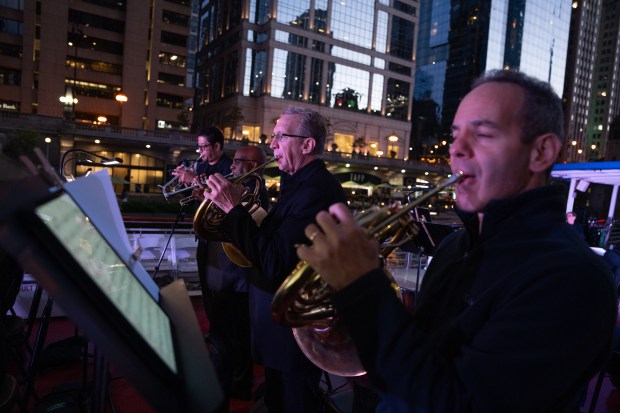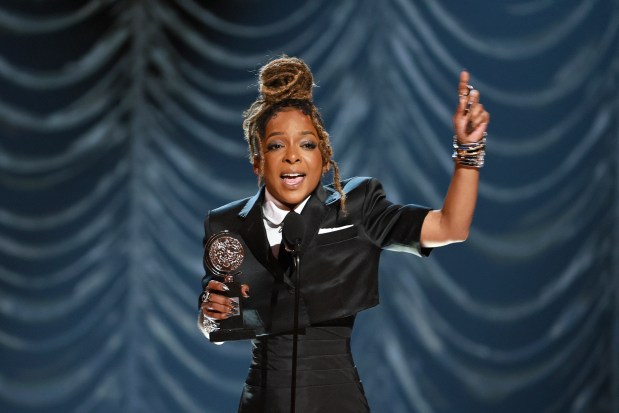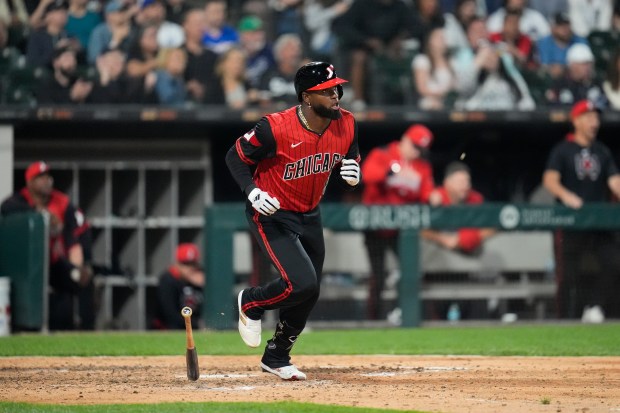You know that Maya Angelou quote, “people will forget what you said, people will forget what you did, but people will never forget how you made them feel”?
A riff on that is usually my yardstick for inclusion on this list. I may not have had the words for why I treasured a concert so much — though I try to wrangle as many as possible in overnight reviews. I may not remember every turn of musical phrase, or every number on the setlist. But I do remember how they made me feel: weightless, soothed, exhilarated, connected, whole.
A few of those shows below:
Best news:
Young Finn Klaus Mäkelä is the heir apparent of the Chicago Symphony. He’s life-affirming on the podium, equally fluent in new work and warhorses, a gifted rehearser, and is a sunny, charismatic advocate for the art form. And he’s only getting better, as proved by a very Shostakovich — and very electrifying — concert in the spring. (Honorary award for best encore goes to last-minute soloist Sol Gabetta, who played her cello and sang in Peteris Vasks’ “Grāmata čellam, II Pianissimo.”)
Most innovative concert:
Is “yacht Baroque” a thing? It became one on Sept. 18, when Music of the Baroque jetted down the Chicago River while performing Handel’s “Water Music” suites, plus other period-appropriate blockbusters. The turnout was spectacular, the weather was a dream and an amplified MOB orchestra sounded exquisite — even when contending with a clanking “L” and the ambient growl of traffic.
Best opera production:
On Sept. 26-Oct 10, throngs of women and children huddled on the Lyric stage alongside the men of “Fidelio’s” famous prisoners’ chorus. But, wait: the chorus is only scored for low voices. What gives?
Director Matthew Ozawa’s stirring production of Beethoven’s only opera knew exactly what it was doing. The son and grandson of internment camp survivors, Ozawa intentionally confronted us with the sight of separated families and children in cages, every bit as evergreen as they were in 1945. The squalor was juxtaposed with the prison’s corporate front office, complete with a water cooler and gray-on-gray filing cabinets. The banality of evil, indeed. Ozawa’s staging was a worthy frame for a nonpareil cast, led by Elza van den Heever as Leonore/Fidelio and Russell Thomas as Florestan.
Best soloist:
Hours after President-elect Donald Trump was nearly assassinated — the first time — South African cellist-vocalist-composer Abel Selaocoe performed his “Four Spirits” for a restless Ravinia audience. Singing, vocalizing, improvising and quoting Bach all the while, the piece could have only come from Selaocoe’s boundless musical mind.
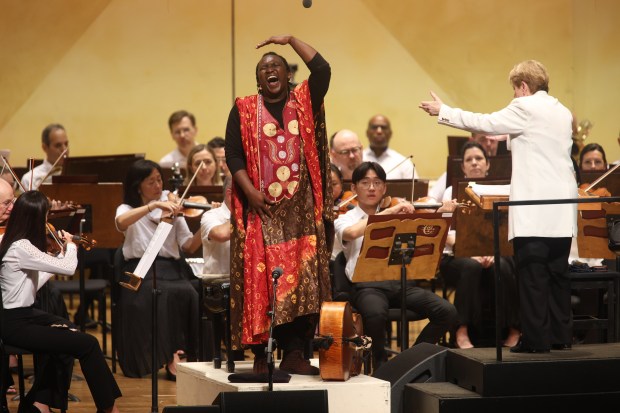
Tightest band:
Led by Evanston-born pianist Myra Melford, Fire and Water’s April stand at the Logan Center for the Arts was one for the ages. It was that rare gig that was as thrilling as it was satisfyingly cerebral, like a brain massage.
Best use of airline miles:
Sorry, but one of the Chicago Symphony’s best performances of the year didn’t even happen in Chicago. Any time CSO music director emeritus Riccardo Muti returns to La Scala — the storied opera house he broke with two decades ago — is big news. On Jan. 27, it also made for incandescent music, the Muti-CSO team playing “Aus Italien” and the “Firebird” suite with supple virtuosity.
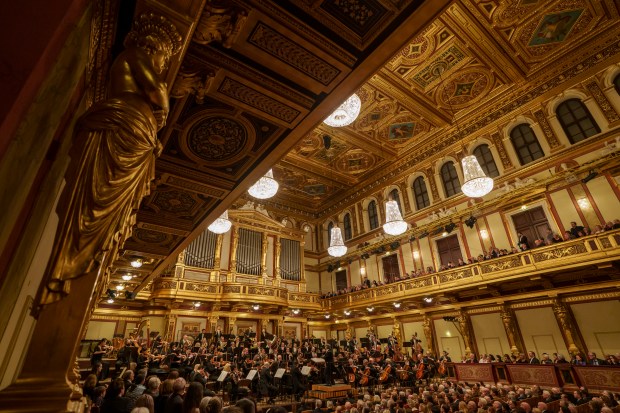
Best fests:
Food truck smells waft up and down the Midway Plaisance every Hyde Park Jazz Festival. But from the stage? That’s new. Immanuel Wilkins — a generation-making alto — invited a chef to cook onstage during his band’s Logan Center set this year. Other pairings were just as Michelin-worthy: a new trio of pianist Craig Taborn, cellist Tomeka Reid and percussionist Ches Smith; keyboardist Justin Dillard’s Wherewithal with guitarist Jeff Parker and drummer Jeremy Clemons; and Dee Alexander’s galvanizing collaboration with the Makanda Project.
On the other end of the arts calendar, but just as adventurous, is the midwinter Frequency Festival. This year, it hosted Zarabanda Variations, who can best be described as avant-Baroque-Latin rockers; violinist Sarah Saviet, playing Bryn Harrison’s epic “A Coiled Form” in a feat of superhuman stamina; Austin Wulliman, a JACK Quartet violinist taking a remarkable solo turn; and organist Ellen Arkbro, whose essay on the Bond Chapel organ conjured an ocean of sound.
All that greatness doesn’t come cheap. As the organizers of both fests made clear this year, rising production costs have cast clouds over their future. The next Frequency Festival is in the books for Feb. 18-23, 2025; the Hyde Park Jazz Festival is also moving forward with a 2025 edition. But next year is never guaranteed.
Best séance:
Colin Stetson, long a cult musical figure — he did the “Hereditary” soundtrack — seemed to be everywhere this year. Months before releasing September’s “The love it took to leave you,” the Montreal-based saxophonist gave a sneak peek of the album at Bohemian National Cemetery. The spooky environs were essential to the moody set; so were the rotunda acoustics, his bass saxophone and electronics sounding like they were swirling around the space’s perimeter.
Best birthday bash:
Guitarist George Freeman, whose birthday show at the Green Mill we covered last year, was on the bandstand again in April at a cool 97 years old. Freeman plays with more hesitation these days, but those pockets were expounded upon most generously by his band: fellow guitarist Mike Allemana, organist Pete Benson, and drummer Bernard “Pretty” Purdie. Singer Joanie Pallatto got in on the birthday fun too, with a rendition of “For the Love of Money.”
Freeman is still capable of surprising all of them. At the end of one ballad, Freeman wafted up the neck of his guitar against a haze in the organ, like a methodical ascent to sky. Before the last note had even stopped ringing, Freeman looked up with a smirk. “That’s it!” The laughter was just as explosive as the applause.
Best return guest:
In 2022, the Berlin Philharmonic and its chief conductor Kirill Petrenko wowed when they broke a long Chicago drought with a one-night-only performance of a single work: Mahler’s Symphony No. 7. They did it again last month with an otherworldly Bruckner 5.
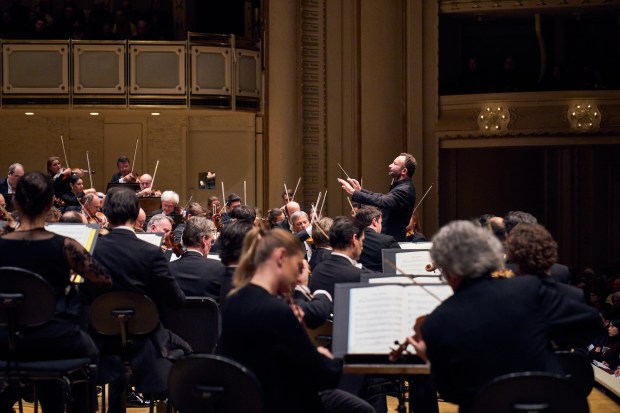
Honorable mentions:
A crawling, sensual “Moby-Dick” at the MCA, directed by artist Wu Tsang with a score by Caroline Shaw and Andrew Yee (Feb 14-16); a deeply felt Elgar concerto with cellist Sheku Kanneh-Mason at the CSO (Feb. 15-18); Shawn Okpebholo’s staggering “Songs in Flight” at Wheaton College (March 11); a Mahler 6 of harrowing clarity with Sir Simon Rattle and the Bavarian Radio Symphony (April 28); Opera Festival of Chicago’s daring double bill of Luigi Dallapiccola’s “Il Prigioniero” and Gian Carlo Menotti’s “The Medium” (July 11 & 14); a pristine and ethereal Oriana Singers in “Monteverdi’s Other Vespers” (Oct. 26 and 27).
Hannah Edgar is a freelance critic.
The Rubin Institute for Music Criticism helps fund our classical music coverage. The Chicago Tribune maintains editorial control over assignments and content.


